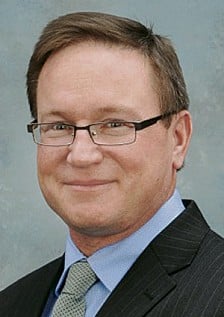GUEST OPINION: Overlooked wellness component affects employers’ bottom line

One of your best employees just hasn’t been herself lately. She’s quick to anger, looks exhausted and her productivity has declined dramatically. She’s been receiving more personal phone calls at work and a bottle of antacids has taken up residence on her desk. Her symptoms fit the classic profile of an employee under financial stress.
Studies have shown that financial stress is a major issue. Financial stress touches every part of your employees’ lives – from relationships, to safety and the ability to focus on the job, to physical health. That can mean reduced productivity and increased health-care claims, which in turn affects your bottom line.
Financial wellness moves to the forefront
Iowa is focused on wellness, as witnessed with our current push for Blue Zones and our desire to become the nation’s healthiest state. Over the past few years, many Central Iowa companies have placed a strong emphasis on the physical health of their employees. Health risk assessments, classes, wellness centers and incentives to participate are just a part of the onsite wellness trend. Now there’s a new wellness component moving to the forefront: financial wellness.
Basic financial education, access to resources and encouragement empower employees to make changes in their financial habits that can truly change their lives. Whether it’s the basics such as creating a spending plan and getting debt under control or classes in retirement readiness, employees are given the confidence that they can achieve financial success.
Financial wellness in the workplace
Convenience and accessibility are key factors of offering education in the workplace. Classes should be offered in the format that best suits the needs of the employees – such as lunch-and-learns or a series of educational programs. Even webinars may engage a geographically scattered work force.
Lessons learned
Legacy Financial Group has provided financial wellness education in the workplace for the last 16 years, and we have discovered two key components:
1. Education, not advice, is what you are looking for. Our goal is to provoke thought, discussion and discovery to help people make their own decisions versus “just tell me what to do.”
2. Use the practitioner versus the theoretician. The PowerPoint and script written by a Wall Street executive who has never been in the trenches with real clients is not going to be as effective as a certified financial planner. Real experience and time-tested stories drive home the key points and lessons.
What can you do?
Resources are available to help you begin or expand your corporate financial wellness programs. The point is to get started. You’ll see positive returns for your employees and for your bottom line just by showing you care.
Brian Hood, a certified financial planner, is a senior partner with Legacy Financial Group in Urbandale. He can be contacted by email at brian.hood@LFGplanners.com.







